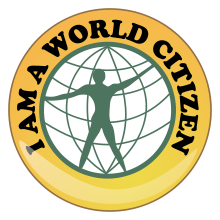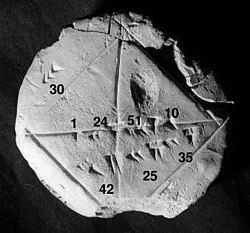Democratic globalisation is a social movement towards an institutional system of global democracy. In their view, this would bypass nation-states, corporate oligopolies, ideological NGOs, cults and mafias. One of its most prolific proponents is the British political thinker David Held.
In the last decade, Held published a dozen books regarding the spread
of democracy from territorially defined nation states to a system of global governance that encapsulates the entire world. For some, democratic mundialisation
(from the French term mundialisation) is a variant of democratic
globalisation stressing the need for the direct election of world
leaders and members of global institutions by citizens worldwide; for
others, it is just another name for democratic globalisation.
These proponents state that democratic globalisation's purpose is to:
- Expand globalisation and make people closer and more united. This expansion should differ from economic globalization and "make people closer, more united and protected" because of a variety of opinions and proposals it is still unclear what this would mean in practice and how it could be realized.
- Have it reach all fields of activity and knowledge, including governmental and economic, since the economic one is crucial to develop the well-being of world citizens.
- Give world citizens democratic access and a say in those global activities. For example, presidential voting for United Nations Secretary-General by citizens and direct election of members of a United Nations Parliamentary Assembly.
Background
Democratic globalization supports the extension of political democratization to economic and financial globalization.
It is based upon an idea that free international transactions benefit
the global society as a whole. They believe in financially
open economies, where the government and central bank must be transparent in order to retain the confidence of the markets, since transparency spells doom for autocratic regimes.
They promote democracy that makes leaders more accountable to the
citizenry through the removal of restrictions on such transactions.
Social movements
The
democratic globalization movement started to get public attention when
New York Times reported its demonstration to contest a World Trade Organization
(WTO) in Seattle, Washington, November 1999. This gathering was to
criticize unfair trade and undemocratic globalization of the WTO, World Bank, World Economic Forum (WEF), the International Monetary Fund. Its primary tactics were public rallies, street theater and civil disobedience.
Democratic globalization, proponents claim, would be reached by creating democratic global institutions and changing international organizations (which are currently intergovernmental
institutions controlled by the nation-states), into global ones
controlled by world citizens. The movement suggests to do it gradually
by building a limited number of democratic global institutions in charge
of a few crucial fields of common interest. Its long-term goal is that
these institutions federate later into a full-fledged democratic world
government.
Global democracy
Thus, it supports the International Campaign for the Establishment of a United Nations Parliamentary Assembly,
that would allow for participation of member nations' legislators and,
eventually, direct election of United Nations (UN) parliament members by
citizens worldwide.
Difference to anti-globalization
Some
supporters of the democratic globalization movement draw a distinction
between their movement and the one most popularly known as the 'anti-globalization'
movement, claiming that their movement avoids ideological agenda about
economics and social matters although, in practice, it is often
difficult to distinguish between the two camps. Democratic
globalization supporters state that the choice of political orientations
should be left to the world citizens, via their participation in world
democratic institutions and direct vote for world presidents.
Some supporters of the "anti-globalization movement" do not necessarily disagree with this position. For example, George Monbiot, normally associated with the anti-globalization movement (who prefers the term Global Justice Movement) in his work Age of Consent
has proposed similar democratic reforms of most major global
institutions, suggesting direct democratic elections of such bodies by
citizens, and suggests a form of "federal world government".
Procedure
Democratic globalization, proponents claim, would be reached by creating democratic global institutions
and changing international organizations (which are currently
intergovernmental institutions controlled by the nation-states), into
global ones controlled by voting by the citizens. The movement suggests
to do it gradually by building a limited number of democratic global
institutions in charge of a few crucial fields of common interest. Its
long-term goal is that these institutions federate later into a
full-fledged democratic world government.
They propose the creation of world services for citizens, like world civil protection and prevention (from natural hazards) services.
Proponents
The
concept of democratic globalization has supporters from all fields.
Many of the campaigns and initiatives for global democracy, such as the
UNPA campaign, list quotes by and names of their supporters on their
websites.
Academics
Some of the most prolific proponents are the British political thinker David Held and the Italian political theorist Daniele Archibugi.
In the last decade they published several books regarding the spread
of democracy from territorially defined nation states to a system of global governance that encapsulates the entire planet. Richard Falk has developed the idea from an international law perspective, Ulrich Beck from a sociological approach and Jürgen Habermas has elaborate the normative principles.
Politicians
- In 2003, Bob Brown, the leader of the Australian Green Party, has tabled a move for global democracy in the Australian Senate: "I move: That the Senate supports global democracy based on the principle of `one person, one vote, one value'; and supports the vision of a global parliament which empowers all the world's people equally to decide on matters of international significance."
- The current President of Bolivia Evo Morales and the Bolivian UN Ambassador Pablo Solón Romero have demanded a democratisation of the UN on many occasions. For example, Evo Morales at the United Nations, May 7, 2010: “The response to global warming is global democracy for life and for the Mother Earth.. … we have two paths: to save capitalism, or to save life and Mother Earth.”
- Graham Watson (Former member of the European Parliament and former leader of the Alliance of Liberals and Democrats for Europe) and Jo Leinen (Member of the European Parliament) are strong supporter of global democracy. They were among those presenting the “Brussels Declaration on Global Democracy” on February 23, 2010, at an event inside the European Parliament.
- The appeals of the campaign for a United Nations Parliamentary Assembly has already been endorsed by more than 700 parliamentarians from more than 90 countries.
List of prominent figures
- Garry Davis (peace activist who created the first World Passport)
- Albert Einstein ("The moral authority of the UN would be considerable enhanced if the delegates were elected directly by the people")
- George Monbiot ("A world parliament allows the poor to speak for themselves")
- Desmond Tutu ("We must strive for a global democracy, in which not only the rich and the powerful have a say, but which treats everyone, everywhere with dignity and respect")
- Peter Ustinov (President of the World Federalist Movement from 1991 to 2004)
- Abhay K ("The mass availability of internet-connected mobile phones paves the way for planetary consciousness and global democracy")
Grassroot movements
Jim
Stark has initiated a process for a Democratic World Parliament through
a Global Referendum. As of August 20, 2013, 22,126 people have voted.
So far, the votes are 95.3% in favor of creating a democratic world
parliament. Portable voting booths are available at http://voteworldparliament.org/shadowbox/getballot.html.
Online voting at Mr. Stark's website is at voteworldparliament.org. Mr.
Stark has published a companion book to the online referendum entitled
"Rescue Plan for Planet Earth".




